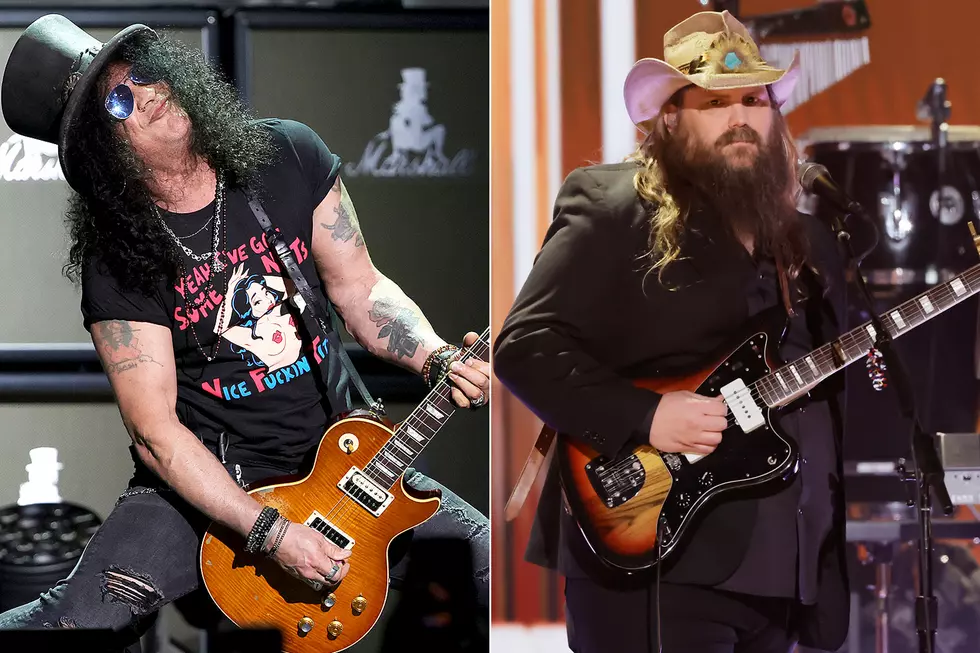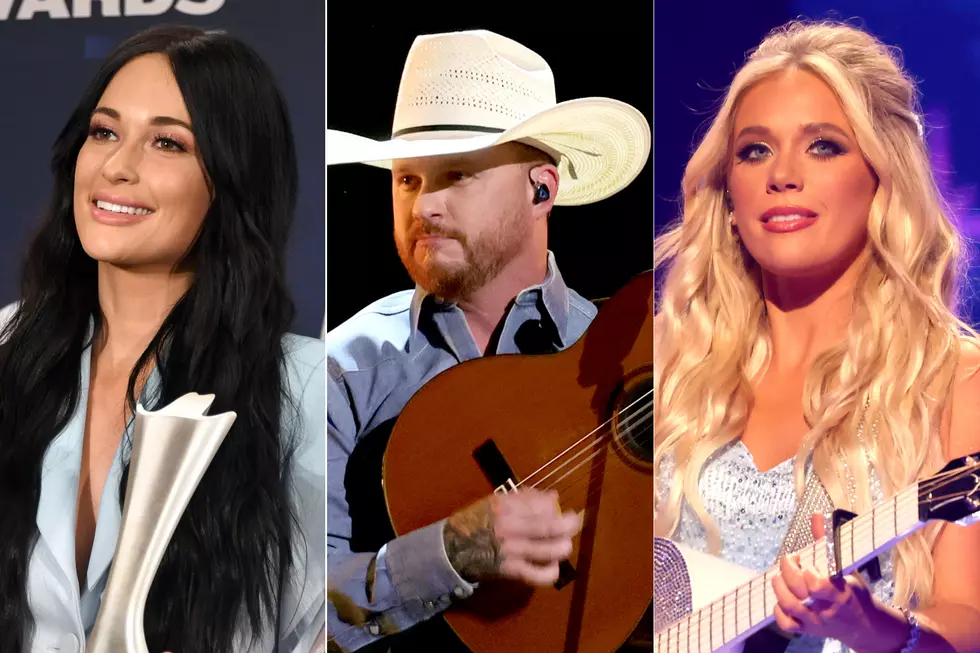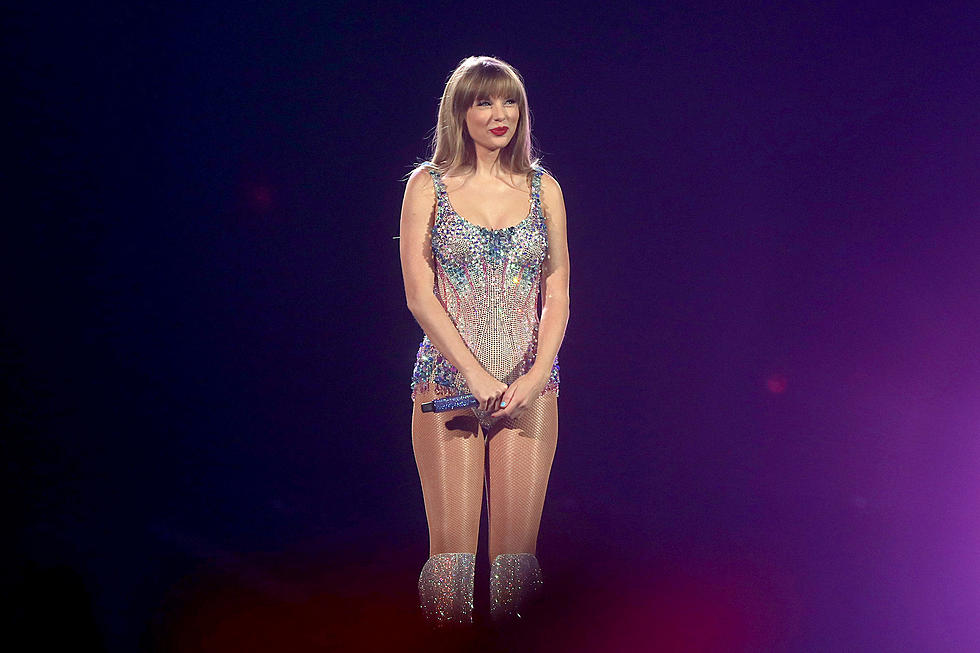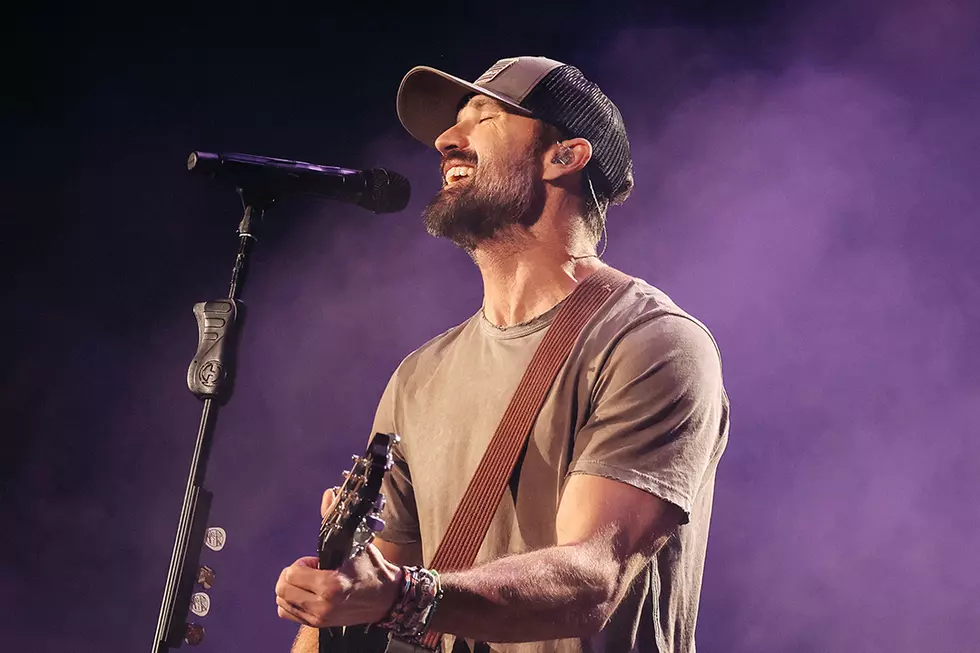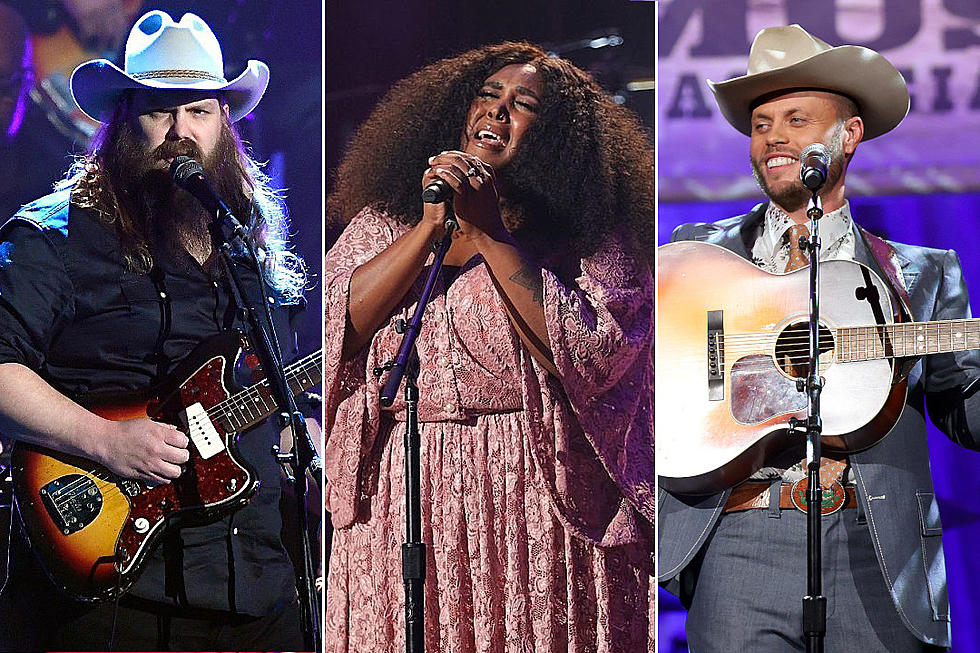
In 2021, I Traveled 50,000 Miles With Five Tunes and Found America’s Truth in Country Music
The following personal essay was written by The Boot contributor and award-winning music journalist Marcus K. Dowling. All experiences and opinions voiced in this piece are his own.
Emboldened by Dolly Parton’s philanthropy and two doses of the Moderna vaccine, with a sense that America was a nation both entrapped by and evolving past the realities of its unjust laws and social divisions, I set upon a 2021 journey across America to discover the future of the nation’s soul.
As an award-winning country music journalist, I wanted to experience the sounds and styles I love being played out loud, in front of people, more than any other genre. Somewhere between the two, in the 2021-released songs of five artists – Chris Stapleton, Joshua Ray Walker, Brittney Spencer, Charley Crockett and Walker Hayes – lies the truth of the United States’ flawed yet somehow fabulous current condition.
Chris Stapleton - “Cold”
For me, 2021 in country music started when Chris Stapleton released Starting Over, his fourth studio album, in November 2020. As with all things criticism and hearing music, context is everything. In two distinctly different moments, hearing the album's track “Cold” made the song resonate incredibly differently.
When I first heard the song just after Starting Over was released, I was in Washington, D.C. having a weekend staycation at the Eaton Hotel, which was interrupted by red-hatted Trump supporters marching in an angry downtown protest. Hearing Stapleton’s soulful tenor describing metaphorically knife-sliced hearts, broken like rock-shattered windows in the context of hearing American citizens distraught at the existence of liberal politics in a democratic country was heavy.
However, the second-most memorable time I bore witness to the song was at CMT’s Artists of the Year event, precisely 11 months later. It was similar yet different. At the event, Boyz II Men were joined onstage by Pentatonix’s beat-boxer Kevin Olusola. Though the initial pain I felt upon my first listen was washed away by the suaveness of Wanya Morris’ performance – and Morgane Stapleton’s positively overwhelmed response – there was still a starkness to it that lingered, like so much of our social and psychological national pain at present.
Joshua Ray Walker - “Sexy After Dark”
Of the many times that I listened to “Sexy After Dark” – East Dallas native Joshua Ray Walker’s magnificent ode to 80s era countrypolitan champagne soul – it was, ironically enough, while in downtown Dallas on a late July evening that its magnificence most profoundly struck me. I was in a Lyft headed to Truth And Alibi, a speakeasy offering burlesque entertainment tucked behind a candy shop that requires a secret password for entry. I grabbed my driver’s auxiliary cable, and the song spilled through the luxury Cadillac XT5’s surround sound speakers. The notes breathed into the air by the track’s horn section sank into my body seated on the premium leather seats. The vibe in that vehicle was more intoxicating than the beverages I consumed that night. It was thick with the sensuous pheromones required to make the lyrics’ yearnings a reality.
There are too many songs in country music about the sophomoric mishaps of weekend bar-hopping. Comparatively, few modern country songs live within the vibes that created something between two 1982 hits – Conway Twitty’s take on the Pointer Sisters’ “Slow Hand” and Rick James’ Teena Marie collaboration “Fire and Desire.” Being all of the latter and none of the former, “Sexy After Dark” impresses.
During an era where we hide our faces, and when our passions are so often tempered by the angst of uncertain times, hearing a song so singularly driven by the smooth delivery of primal desires is massive. In a time where humanity is a question, this offers an answer that highlights that life can still be lived and lived well.
Brittney Spencer - Sober & Skinny
For as much ink has been spilled about Brittney Spencer, there is remarkably little that actually speaks to how and why she connects so powerfully, so quickly, to her newfound and highly-devoted fanbase. I was having breakfast on an unseasonably warm October morning at the Bacchanal Buffet at Las Vegas’ Caesars Palace while people-watching a young, hungover couple who also seemed to be recovering from their first lovers' quarrel. They were staring from their over-filled plates into each others' eyes with an exhausted, sad glaze. At this moment, the song’s magnificent power – and why Spencer is such a uniquely great songwriter – struck me.
“Sober & Skinny” closes with the lyrics, “You're not sober, I'm not skinny / We’re scraping by old borrowed pennies / Writing checks that'll never cash / Breaking all our promises.” Most great country songs find heroes who have – even if it’s Billy Joe McCallister jumping off the Tallahatchie Bridge – some level of, even sometimes rebellious, positive appeal. However, as Brittney Spencer’s voice coolly scales octaves, and flutters between syllables, the song begins to elevate the commonplace story of a couple struggling with actualizing their best selves to high art. Then, as if somehow both out of nowhere yet also wholly expected, this couple’s fatal flaw is beautifully exposed.
Country music’s storytelling creates relatable yet still heroic characters but never closes that cycle by returning those heroes to their human roots. This song accomplishes that.
Charley Crockett - “Music City, USA”
Two thousand miles away from Nashville, Tennessee lies Los Angeles’ 1,100 person capacity Regent Theater. Much like Charley Crockett onstage there on the same November evening as the CMA Awards, holding his guitar like Merle Haggard while duckwalking like Chuck Berry, crooning with a rich baritone like Johnny Cash, and wearing gabardine pants tighter than anything Otis Redding ever wore, the venue is a throwback. It was founded as a movie theater in 1914 but is now a music venue that attracts acts on the verge of massive superstardom. Its shows tend to sell out with fans stacked like cordwood (as Crockett did) at the moment before fans in arenas will be screaming and fainting like they’re watching Elvis. However, more important than all of those notes is the magic of the moment of hearing Crockett’s snub of mainstream country’s longstanding industry politics, “Music City, USA,” in such a space.
There’s something in how Crockett finds a way to cut a furtive glance while slowly turning his head that allows every eye in the room to capture his, and not the other way around. It’s not how gifted onstage performers are taught how to do it, but it works for this song. In a point made larger than music, it’s a sly thing to outfox a machine and even more entertaining to let everyone in on the fact that you’re pretty sure that you’ve won. Unlike John Henry driving steel, Crockett appears to be on the verge of getting rewarded for his decade-plus of work as a tireless neotraditionalist engine working against the grain of country music’s well-entrenched mainstream.
Walker Hayes feat. Kesha - Fancy Like (Remix)
This track, moreso than anything else I heard in 2021, correctly identifies the wild interplay occurring at the intersection of America and country music.
Currently, the easiest way to converse in a widely understood way in American society is by using language and swagger coded by hip-hop culture. That’s not a problematic notion until Walker Hayes, a 41-year-old, white, country music artist and father of six from Mobile, Alabama does it – and does it miraculously well. When that coded language and swagger makes a profound point about the nature and state of the American working-class human condition distressed in the throes of late-stage capitalism, it’s bittersweetly frustrating. But then, the song becomes famous because of Tik Tok – a mobile app that has reduced every major pop hit of the last two years into a 15-second, laughable, arrhythmic dance routine – and for a large portion of the population, it’s infuriating.
On top of this, add that a big-box corporate chain restaurant with bottomless Long Island Iced Teas and two entrees for $20 on its menu begins using it as a commercial jingle, and the situation becomes abysmal for that same previously mentioned population. When Kesha, a pop superstar whose greatest-selling hit occurred a decade ago, pops up on the remix and announces her arrival, the track becomes not an earworm, but an ear sore.
However, for everyone not aggrieved by this track – plainly, simply, and without need for any further conversation – it’s bursting at the seams with bits of everything they’ve ever loved in four heart-warming minutes.
Top 10 Bluegrass Albums of 2021
More From AM 950 KOEL
![Chris Stapleton Victimized in Hilarious ‘SNL’ Skit: ‘Get That Boy Back’ [Watch]](http://townsquare.media/site/204/files/2024/04/attachment-stapleton-snl-skit.jpg?w=980&q=75)
